What did you use all that yeast for?
To make bread! The symbol of life. A journey into the lockdown dynamics that brought home cooking to the fore.
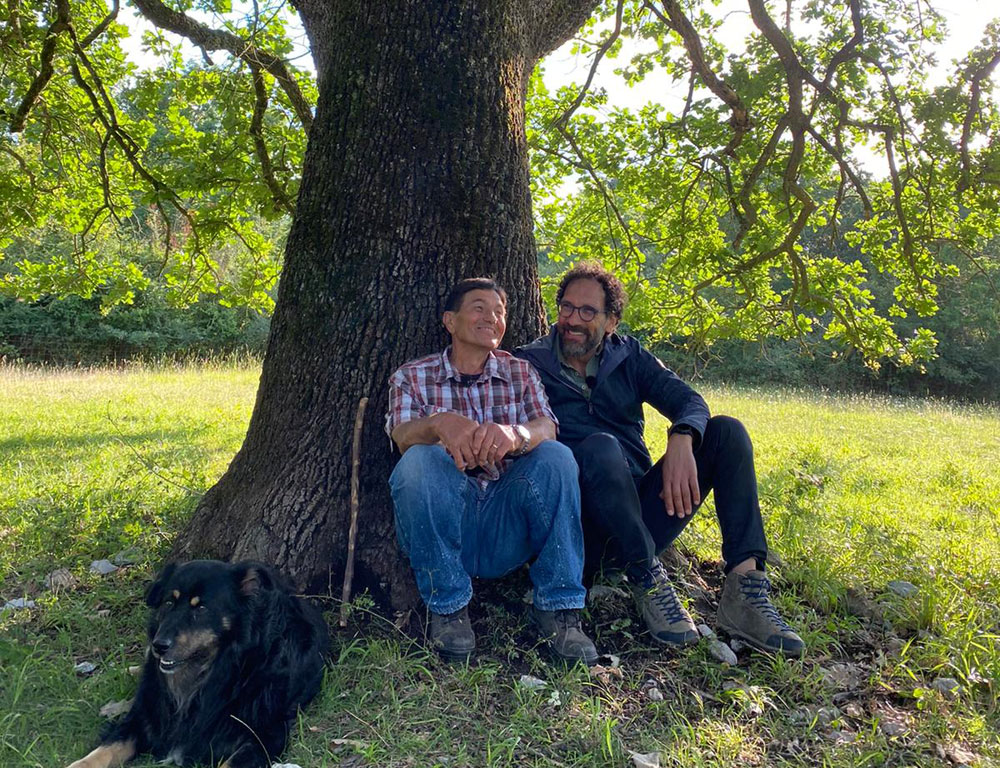
When I was asked to contribute a piece on the theme of unpredictability (clearly inspired by our current experience with the pandemic, a word that's new to so many of us, and unwelcome to all), I immediately thought of some friends I'd recently visited in the Casertano, a region I wrote about in my book Terra. Riscoprire le nostre origini per costruire un futuro migliore.
Sometimes, unforeseen obstacles force us to make a decisive change of course, and destiny leads us in directions we'd never expected we'd take. Think of how many graduates, for instance, have studied to exercise a certain profession only to throw it all in and pursue a completely different - and much more fulfilling - life trajectory. Life is strange, and unpredictable. Being ready for every eventuality is a virtue, for readiness is responsiveness.
This is the story of Franco, Fabio and Manuel.
“The Casertano is a very big province. The notorious Wasteland - the "Terra dei fuochi", so named after the illegal burning of waste that happens there - covers only three percent of the total surface area of the province. The Camorra has only poisoned a tiny part of the province: the very part where they themselves live and bring up their children. That's how stupid they are. It's like sweeping all your household waste under the good rug in the living room! It's a cliché to say the Casertano is polluted.
The Wasteland exists, and is a horrifying fact, but it's a limited phenomenon relative to the rest of the province and the honest, law-abiding people who live and work there and love it more than anywhere else in the world.
It was here in the Alto Casertano that I met one of the loveliest families I've ever had the fortune to meet.
Franco is a short man in a checked shirt and a cap that isn't big enough for his face. He's been a shepherd for thirty years. The farm he owns was his father's before him, and his grandfather's before that. Franco emigrated to Belgium in the 1970s, but nostalgia for his roots brought him home again.
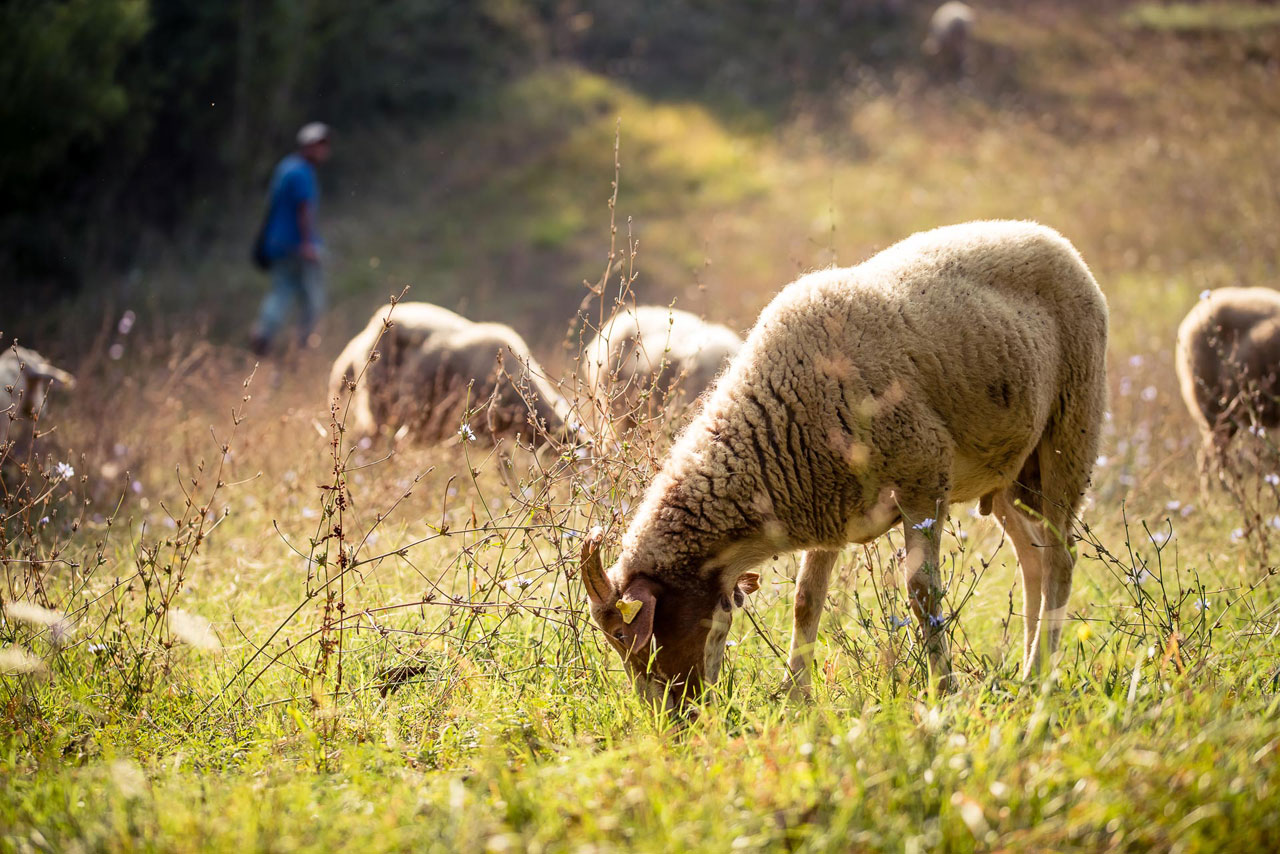
But something in the way Franco talks suggests there's more to the story than meets the eye. It's as if he was hiding the truth from me. I can't grasp what it is that made him change his mind: what really makes him love the job he does.
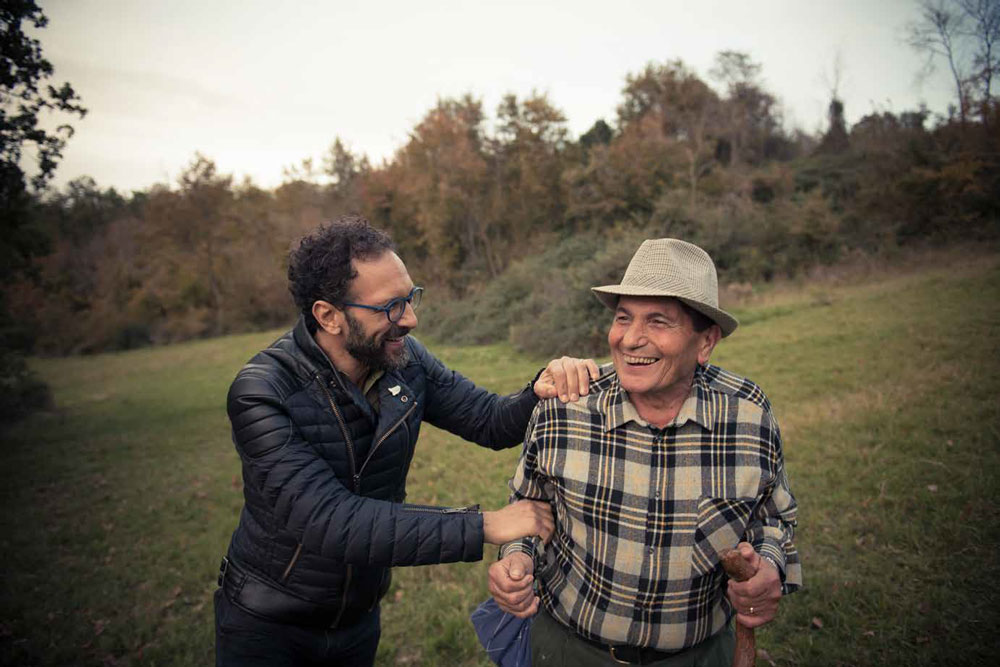
Franco holds his head high when he's telling me this. He was so proud of his son. He smiles, putting a brave face on the pain he's feeling. But let me make it quite clear: Franco feels his son's loss deeply, every day of his life. The grief never leaves him:
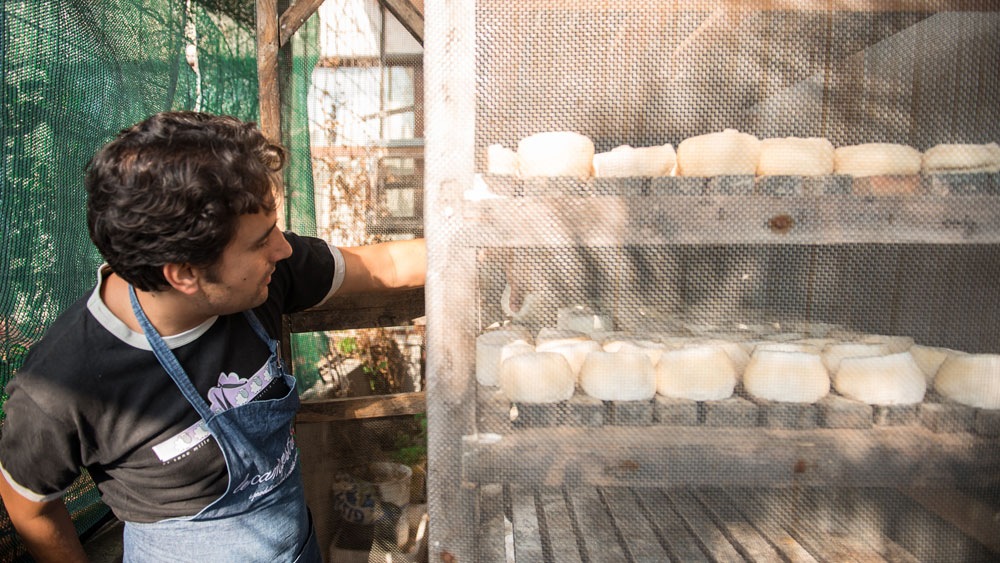
I have no idea how deep is the abyss of pain behind Franco's gentle, good-natured expression. I know there's something inside him I can't fathom, that will remain forever unexplored, like the ice grottoes in Lake Matese. But I do know how real and intense Franco's pain is, and how his silent endurance of his grief makes him the most beautiful person in the world: strong and fragile at the same time, vulnerable and deeply human. I find his pain and his silence incredibly moving.
When I leave Franco I go to meet his other son, Fabio's older brother, Manuel, who's busy feeding the pigs. They're the traditional local breed, Nero Casertano. Although that's an inaccurate name: they're not black (nero) but slate grey. The Nero Casertano breed was rescued from extinction by the untiring efforts of the Slow Food movement. Manuel then takes me to see where they make their most prestigious product, the famed Conciato Romano cheese, matured in terracotta amphoras. Conciato Romano is a ewe's cheese which many have called the mother of Italian cheeses. It's certainly the oldest, for its origins go back to the time of the Samnites. Manuel previously worked in computers and had scarcely a thought for life in the country, even when visiting his farmer parents and brother every Sunday. But all that changed unexpectedly. Now, although he sorely misses his beloved Fabio still, he's happy to be part of his brother's dream.
Manuel and his family are one of just a handful of producers of Conciato Romano.
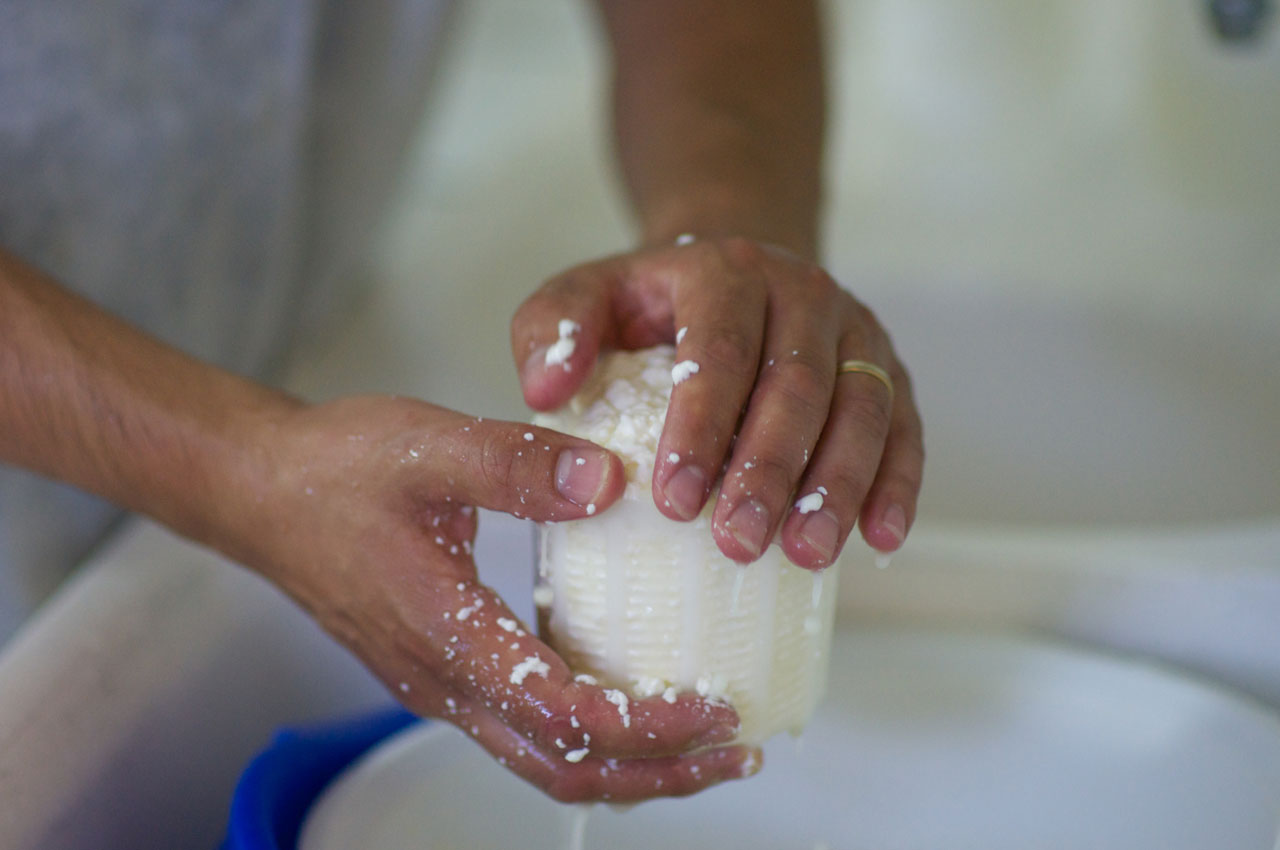
Manuel's mother (Franco's wife) shows me how the newly-hardened cheese is steeped in water that's been used for cooking homemade pasta (it's loaded with starch, therefore), then placed on hemp cloths to dry, and finally inserted into an amphora together with a little piperna (a variety of thyme, picked in May when it's in flower), a little chilli pepper, a splash of Casavecchia wine and some Caiazzana extra-virgin olive oil. The mouth of the amphora is then plugged, and every ten days the amphora is rotated to encourage the cheese to absorb the flavours. The cheese is left to mature in the amphora for at least six months. Served grated on scialatielli, a fresh pasta traditionally made in the Casertano, it's simply divine.
Franco, Manuel and their wives have now opened a family-run agriturismo on their farm. The farm's produce is served directly to the tables of its guests, who are treated almost as if they're members of the family. And when I'm staying with this family, I never want to leave.”
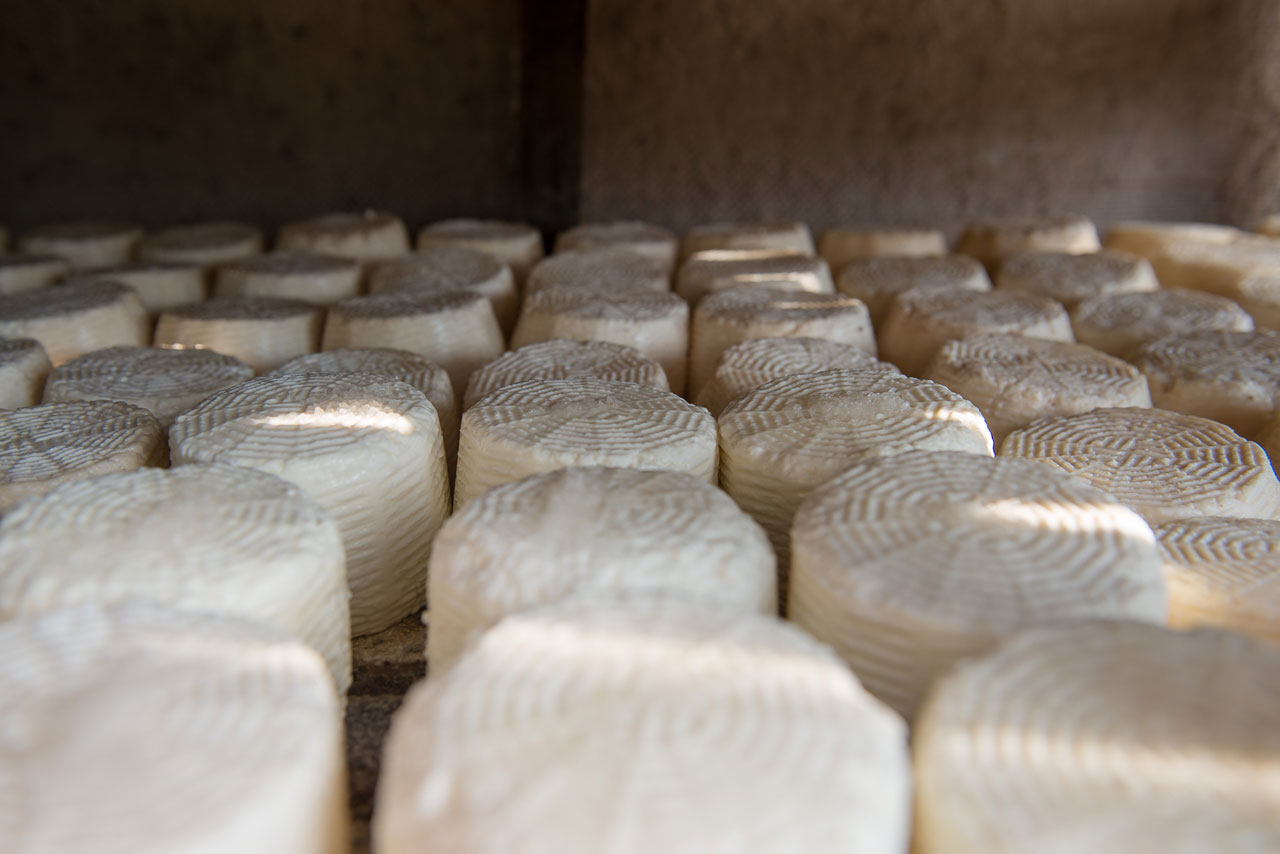
What did you use all that yeast for?
To make bread! The symbol of life. A journey into the lockdown dynamics that brought home cooking to the fore.
When solidarity meets sustainability, the result is Zero Waste.
A conversation with Andrea Segrè, founder of this social initiative.
